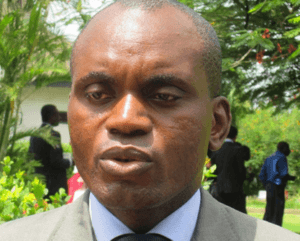African Court rejuvenated for the next 10 years

The African Court on Human and Peoples Rights (AfCHPR) has set out a rejuvenated agenda for the next 10 years judging from its achievements and challenges over the past decade.
“African Court is neither a Court for the States nor a Court of the Judges, but rather a Court for all African citizens desirous to see an Africa, which adopts zero tolerance to human rights violations.
“It is under this one condition that the African Court would have any sense and be able to make its mark in our common struggle to build a more worthy, more humane and more prosperous Africa,” Justice Sylvain Oré President of the African Court stated at Arusha, the United Republic of Tanzania.
Justice Ore, who was speaking at the on-going international symposium on a decade of human rights protection by the African Court, tagged the issue of access to the Court as one of the pillars for the next 10 years, whilst calling for more sustained adhesion by States.
He said for the African Court to grow in legitimacy and authority in the next 10 years; “It has to have the means to accomplish its mission, means both human and material”.
The African Court President also recalled the crucial role of the African Civil Society Organisations (CSOs), which has been at the forefront of the establishment of the Court.
He challenged CSOs not to give the impression that its mission came to an end after the establishment of the Court.
“CSOs are still crucial in the next 10 years especially when the issue of the scope and quality of the Court’s decisions.
“CSOs should continue to deploy its efforts on issues even more significant as the rights of women especially through a more active application of the Maputo Protocol, which has now been in force for 10 years.”
Justice Ore expressed concern that in the 10 years of the existence of the Protocol establishing the African Court, its jurisdiction was recognised by only 30 States, and only eight of them had authorised individuals and non-governmental organisations (NGOs) to seize the Court.
He raised issues with emerging challenges about the legitimacy and authority of the Court, stressing that: “In my view, this is a monumental challenge because every time the authority of the Judge is questioned, it is the rights of litigants that are under threat.
“Similarly, there is no greater challenge for a Judge than not seeing the litigant enjoy the benefit of the decisions it has rendered.”
The African Court President asked African Governments to undertake introspect on the use of investing so many resources to establish a Court when the enforcement of its decisions is completely unsustained or left entirely to the discretion of States without any follow-up mechanism.
About 150 delegates including the academia, CSOs, Organs of the African Union, judiciary representatives of regional and sub-regional human rights institutions, media practitioners are attending the two day commemoration.
Other dignitaries attending the symposium includes: Mr Harrison Mwakyembe, Minister of Justice and Constitutional Affairs of Tanzania; Dr Khabele Matlosa, Director, Political Affairs Department, African Union Commission; and Representative of the East African Community Court of Justice.
The rest are: Representative of ECOWAS Court of Justice; Representative of the European Court of Human Rights; representatives of the African Commission on Human and Peoples’ Rights; and African Committee of Experts on the Rights and Welfare of the Child.
Representative of the United Nations High Commissioner for Human Rights and GIZ (German Development Cooperation), were also represented
Source: GNA
